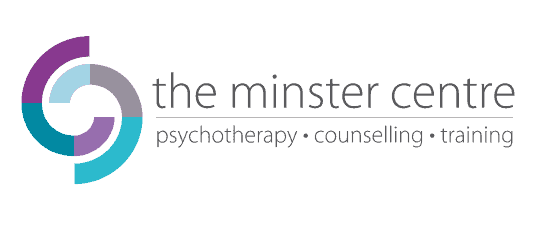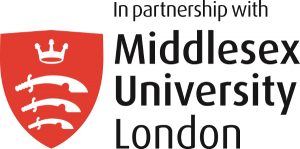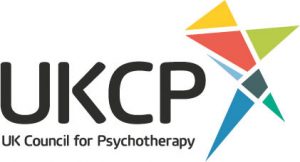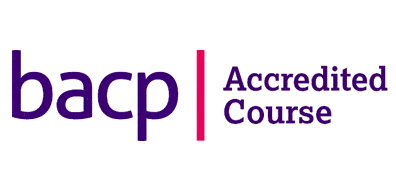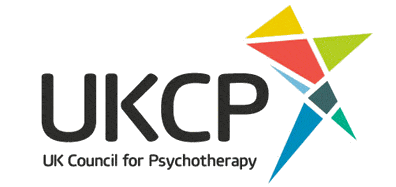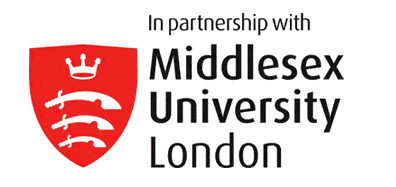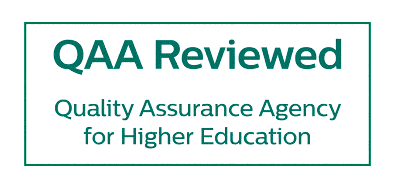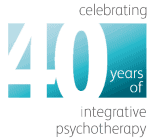About the Course
This completes a four-year modular course which qualifies students to practice as Integrative Psychotherapist, and meets the training requirements for registration with UKCP as a psychotherapist. The first two years follow the same curriculum as the Diploma in Integrative Counselling; the last two years form the MA.
The Advanced Diploma is a high-level vocational qualification. The MA (Master of Arts) is an academic qualification. The MA is always obtained in combination with the Advanced Diploma, it cannot be obtained separately and the work submitted is the same. This programme is quality assured by Middlesex University and you will receive a Middlesex award on successful completion.
The Minster Centre’s Integrative approach encourages people to find their own voice and identity as therapists. The theoretical framework of the MA/Advanced Diploma includes Psychodynamic, Humanistic and Existential, Body work and Relational thinking within a structure which contains academic, experiential and practical components. As well as being grounded in the traditional approaches to psychotherapy and counselling, our tutors also have experience and expertise in contemporary understandings, such as neurobiology, relational and embodied work.
The Minster Centre prides itself in offering small study groups, personal attention and a friendly, supportive learning environment which encourages personal development. The Centre also has a long tradition of social commitment and our training syllabus reflects this, with students encouraged to reflect on issues of diversity and society as part of their work.
In most cases, we are able to refer ‘training clients’ to our students via the MCPCS, our affordable therapy service. Both training clients and placements will help you accrue the necessary client hours for graduation and accreditation with the BACP or UKCP.
Students who successfully complete the MA/Advanced Diploma in Integrative Psychotherapy and Counselling may go on to seek UKCP registration.
Course Content
Students will have completed the course work from the first two years of the Minster Centre Diploma in Integrative Counselling. Students then go on to study:
Two core academic modules which develop students’ practical and academic integration, making links across theoretical and methodological models: Personal and Clinical Integration and Contemporary Theories of Psychotherapy
Weekend Workshops (21 weekend days over 2 years): Students participate in weekend workshops during the course to extend their learning, they cover experiential exploration or give more time to cover areas in more depth. Topics covered include, Death and Bereavement, Working with Sexual and Erotic Charge and Gender, Sexual and Relationship Diversity.
One Mental Health Familiarisation module which consists of 6 weekend teaching days on Severe Presentations, The Use of Medication, Psychiatric Assessment, Self- harm and Suicide (included in the total of 21 weekend days stated above) plus direct experience.
Clinical Practice and Placements: Students continue their work with training clients. After completion of 450 hours of supervised practice, students may go on to seek UKCP accreditation through the Minster Centre, or personal accreditation with BACP.
Two Clinical Supervision modules where work with long term training clients is supervised and students are supported to develop their clinical practice and prepare for final assessment. You will attend clinical supervision weekly in term-time plus 5 supervision sessions during the holiday periods.
Teaching on research methods, skills and ethics. There will be both weekday and weekend research teaching options.
Following research teaching students prepare a 15,000-word dissertation with the support of a research supervisor.
It is also a requirement for all students to be in individual psychotherapy at least once weekly throughout the course.
Clinical Practice and Placements
When both the student and their supervisor agree they are ready, usually in the second year, students start working with one or more training clients, and may start an external placement. A total of 450 supervised clinical hours is required to qualify.
In most cases, we are able to refer ‘training clients’ to our students via the Minster Centre Psychotherapy and Counselling Service (MCPCS) our affordable therapy service. You will usually work with two or three long-term training clients. In addition, you will need to work in an external placement. Placement experience accelerates and deepens your professional learning and understanding and increases your employability. Placements are an opportunity to learn about working within therapeutic services and to make contacts with others in the field. Both training clients and placements will help you accrue the necessary client hours for qualification and to seek registration with UKCP.
You will be responsible for securing a placement but will receive advice and guidance from the Placement Coordinator. You will need an enhanced Disclosure and Barring Service (DBS) check. One DBS check is included within your course fees and will be organised with you in the second year. Having a criminal record will not necessarily prevent you from becoming a counsellor or psychotherapist each case is considered on an individual basis. You will be given an opportunity at your selection interview to discuss this with your interviewers. For more information about DBS checks see here.
Accreditation
All four years are accredited by UKCP. Modules for the final two years of the programme (which form the MA) are quality assured by Middlesex University at postgraduate level (Level 7) and you will receive a Middlesex award on successful completion.
UKCP reviews course accreditation every five years, we were last reviewed in 2017. Middlesex University reviews validation every six years, our validation was last reviewed in 2020.
Assessment
There is a formal or ‘summative’ assessment at the end of each module. Assessment methods are primarily coursework assessments including essays, portfolios, reflective accounts, case studies and live assessment of a recorded piece of clinical work, and a dissertation. Support and guidance is given for each assessment.
Assessment is by course tutors, except for the Live Assessment, which is assessed by examiners not teaching on this programme. In addition to formal assessment of written work, tutors and supervisors assess students’ experiential and clinical work. All marking is moderated and we also have an external examiner to ensure that marking is fair and consistent. You will receive feedback on all formal assessments to support your learning.
Students are assessed each year and given specific recommendations on areas they need to work on and whether they are ready to progress to the next year. Students can be asked to repeat modules or take time out of training.
As well as passing all modules and written work as required, students must have accrued 450 hours of supervised clinical practice with training clients and on placement and undertake a Mental Health Familiarisation Placement.
Course Leader(s)
Head of Year 1: Nancy Browner and Jenny Clark
Head of Year 2: Anne Marie Keary and Reena Shah
Head of Year 3: Mark Maclean and Brigitta Mowat
Head of Finalists: Nancy Browner and Morica Daley
Course Dates and Times
Attendance
This is a part-time course which takes a minimum of four years to complete. The first two years follow the same timing as the Minster Centre Diploma in Counselling. The first year of the MA (third year of professional training) runs on Wednesdays (9.30-6, 10-6.30 or 12- 8.30) for three ten week terms. In addition, there are six weekends covering personal and professional development topics and 5 2-hour holiday supervision groups.
In the second year of the MA (fourth year of professional training) students come into college for 35 supervision groups (weekly in term time) and complete the written final submissions of a dissertation and two case studies and present their clinical work for live assessment. There are also 14 taught weekends. Finalist supervision is usually on a Wednesday but there are some other options available and there is some choice of day and time.
Research is taught via both weekday and weekend teaching options.
From the second year of professional training onwards students will also need to allow time for clinical practice (you are likely to be seeing four or more clients a week). The timing of this will depend on your placement requirements and the time that both you and your training clients can manage.
Because of the experiential nature of learning required to become a counsellor and psychotherapist there is a 80% minimum attendance requirement for all components of the course i.e. 80% attendance of each module (including ETGs and supervision) and weekend teaching.
First term
Monday 22nd September to Friday 5th December 2025
Half-term – Monday 27th October to Friday 31st October
Second term
Monday 12th January to Friday 3rd April 2026
Half-term – Monday 16th February to Friday 20th February
Third term
Monday 20th April to Friday 3rd July 2026
Half-term – Monday 25th May to Friday 29th May
Bank Holidays/Closure:
Christmas and NY closure: 19th December 2025 to re-open 5th January 2026
Good Friday – 3rd April 2026
Easter Monday – 6th April 2026
May Day – Monday 4th May 2026
Spring B/H – Monday 25th May 2026 (within half-term)
Term dates for following years will normally be available in July each year; timings for seminars will normally be released in early September.
Course Length
Minimum 4 years, part-time.
Minimum 2 years for the MA component.
Some students take more than 1 year to complete the final submissions.
It is possible to complete the Diploma in Integrative Counselling concurrently.
Who Is It For
This course is for people who wish to train as psychotherapists working at depth and long-term with clients who may have more complex issues.
Entry Requirements
Applicants must have:
- Successfully completed the first two years of the Diploma in Integrative Counselling (also known as Professional Training) at the Minster Centre and be recommended to continue to further training
OR
- Are trained practitioners who have successfully undertaken an Integrative counselling training elsewhere.
- Have significant clinical experience of providing counselling and psychotherapy (at least 150 hours).
- Be able to demonstrate extensive self-development activity (usually obtained through recent one to one personal therapy).
- Have completed a minimum of 20 hours of ongoing personal individual therapy within the year prior to the start of the course and have had at least 40 hours of personal therapy at some point prior to the course.
- Possess a first degree or be able to demonstrate the capacity to study at Postgraduate level through providing evidence of work at this standard produced through academic or professional study or other experience.
- Must be competent in the English language. If English is not your first language you will need to demonstrate a capacity to study in English either through your written and practical work during previous training at the Minster Centre, or in your application and interview and through qualifications such as IELTS 6.0 (with minimum 5.5 in all four components).
- We are not able to consider applicants who require a Tier 4 visa to study.
- Please note a DBS check will be required before you can start seeing clients. see section on Clinical practice and placements above for more information.
Practising as a counsellor or psychotherapist, and training to be one, is a psychologically, as well as intellectually, demanding process. Personal qualities we are looking for in trainees include:
- Openness to forming and maintaining therapeutic relationships with others.
- The ability to engage in experiential learning.
- The ability to reflect on experiences.
- Openness to feedback from tutors and peers.
This requires a degree of psychological robustness and a capacity for self reflection. Having had a mental health diagnosis or difficulty in the past is not necessarily a barrier to training; however we do need to consider whether there is a danger of the training exacerbating mental health problems in applicants. For this reason, we ask about mental health during the application process, and the Centre reserves the right to refuse admission to applicants who we judge would not, at this time, be able to benefit from this course or for whom it might be too disturbing.
Applicants need the technical ability to work online and have a private space to attend online training sessions and for online/phone therapy sessions, if remote client work at the student’s home is required.
Accredited Prior Experience and Learning (APEL)
If you feel you have accredited prior learning that may be relevant to your application, please contact [email protected] for further information.
Qualifications
Students who successfully complete all the requirements are awarded a Minster Centre Advanced Diploma in Integrative Psychotherapy and Counselling. If you have registered with Middlesex University you will also be awarded an MA in Integrative Psychotherapy and Counselling by Middlesex University.
Career Prospects
The Advanced Diploma/MA is accredited by UKCP. After successful completion of the course students may go on to seek UKCP Registration through the Minster Centre.
Graduates of The Minster Centre can be found working successfully all over the UK and abroad. As well as private practice, graduates work with a variety of client groups in the NHS; in schools, colleges and universities; in organisations such as MIND and other charitable foundations; and as tutors in other training organisations. After further clinical experience, graduates may obtain further qualifications in clinical supervision.
Graduates have gone to higher-level study on doctoral programmes.
Fees
Course fees are subject to annual inflation. Once you have started a course we will endeavour to keep fee increases in subsequent years as low as possible. Increases may occur to reflect changes to the course, changes in the requirements of accrediting organisations, inflation, staff pay rises or other increases to the cost of providing the course.
A non-refundable deposit is payable to secure your place once you receive an offer. If you withdraw your place on the course after you have paid a deposit and within 28 days prior to the course start date, half of the deposit can be refunded to you as long as we can fill your place with another applicant. The other half of your deposit will be retained to cover administrative costs. The deposit is not transferable. If you withdraw after the course start date, fees are non-refundable and the full year’s fees will be due. If you defer after the course start date, you could be offered a place in the following year, if one is available, but will need to pay a further deposit then. Please note that places are subject to availability on all our courses. Places can only be deferred once after which you will need to reapply.
Fees include supervision of training clients, one DBS check, common room facilities and refreshments, access to the library and on-line resources, insurance for seeing client through the Minster Centre Psychotherapy and Counselling Service.
The following course related costs are not included in the fees: personal therapy, placement supervision (usually but not always provided by the placement), any additional costs associated with placements, the provision of consulting rooms for seeing training clients, assessment of resubmitted coursework. Personal therapy can cost from £50 per session upwards in London, sometimes less outside London. In addition, you will need to budget for the purchase of key books a year (these are texts you will need to refer to frequently) and travel to the Centre, to placements and to therapy. Depending on the topics you choose for your written assessments you may need to buy books or internet access to articles, or access books, articles or other resources through the British Library or other specialist libraries. You will also need a secure means of audio recording client work, ideally this will be on a password protected and encrypted digital recorder, which cost around £400.
Accommodation and living costs are not included in fees and as all our students are part time we do not have on-site accommodation. The Centre has no parking available for students unless you have a blue badge. The Centre is close to public transport. We cannot guarantee that the timing of courses will not require peak time travel.
For more details on fees and financial terms and conditions click on the button below:
Financial Support
If you register on the MA you may be eligible for a Postgraduate Student Loan in the final 2 years. These are Government funded student loans for students on Masters courses of up to £11,222 to help with fees and living costs. These are not based on income and are paid directly to you. There are personal eligibility requirements which are determined by the Government, for instance, you have to be under 60 and not already have an MA, you will need to repay the loan plus interest and repayments will be based on your income. More information loans and how to apply can be found here:
http://media.slc.co.uk/sfe/nysf/pgl/sfe_pgl_main_guide_1617_d.pdf
and
https://www.gov.uk/postgraduate-loan/overview.
The Minster Centre also offers some bursaries. Click here for more details on Funding.
Venue
The Minster Centre is a five minute walk from Queens Park Tube (Bakerloo line) and Rail Overground Station and a 10-15 min walk from Brondesbury Park Station.
How to Apply
Applications 2025-2026: Our waiting list is full and we are not currently accepting new applications for this course.
You apply directly to the Minster Centre via the online application form below.
All candidates are selected by individual interview with two senior staff members. The interview fee is paid upon application.
We particularly welcome applications from Black, Asian and Minority Ethnic (BAME) candidates and people with disabilities, as they are currently under-represented at the Minster Centre and in the psychotherapy profession.
